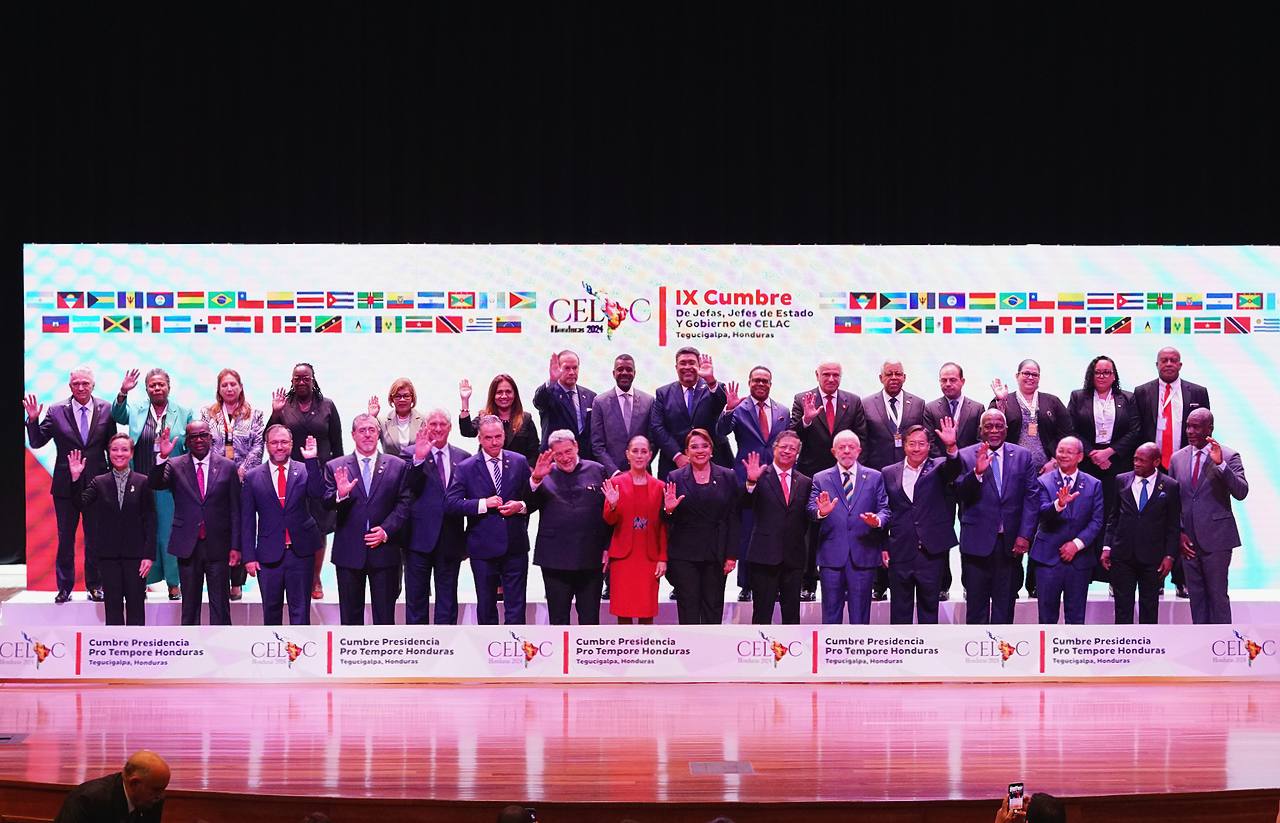Tegucigalpa, April 9, 2025 — This Wednesday, the Pro Tempore President of the Community of Latin American and Caribbean States (CELAC) and President of Honduras, Xiomara Castro, officially transferred the leadership of the regional bloc to the President of Colombia, Gustavo Petro.
From the Central Bank of Honduras in Tegucigalpa, President Castro opened the 9th CELAC Summit and emphasized the ongoing need to strengthen unity in Latin America and the Caribbean, including the nations of the Bolivarian Alliance for the Peoples of Our America – Peoples’ Trade Treaty (ALBA-TCP).
“Honduras today hands over the CELAC presidency not as a ceremonial act, but as a political one, because maintaining this space amid constant siege has been difficult. This past year we have strengthened CELAC (…) CELAC is not a perfect organization, but it is ours. The dream of the Greater Homeland is more urgent than ever, as global powers like the United States redraw the economic map,” Castro declared.
She added, “We cannot walk separately, but neither can we unite by repeating the mistakes of the past. CELAC must be respected as a zone of peace; it must be a tool for emancipation, for sovereign cooperation, for democratic socialism, and for the self-determination of peoples.”
Likewise, the President of the ALBA-TCP guest country, speaking on behalf of CELAC, condemned the blockade against Cuba and the economic sanctions imposed by the United States, while also recognizing the sovereignty of Venezuela and Nicaragua, and the sovereign rights of Haiti and Palestine.
Colombia
On the other hand, the President of Colombia, Gustavo Petro, affirmed that unity in the region is essential, even in the presence of differing viewpoints.
“Despite all our differences, we can work together,” Petro declared, who officially assumed the CELAC presidency on Wednesday. He strongly defended multilateralism before the plenary session of the summit.
Petro argued that there is a global tension between two approaches to problem-solving: multilateralism and isolation, the latter of which leads to violence — a reference to the seminal work of author Gabriel García Márquez.
“Multilateralism refers to what is shared, while solitude suggests that we have no shared problems. A ‘save yourself if you can’ mindset is a kind of neoliberalism taken beyond the pure market, extending it to all of humanity. A ‘defend yourself however you can’ ethos is alien to the human species, which only survives through mutual aid,” he stated.
Finally, he stressed the importance of deepening mutual aid and cooperation, warning against the temptation to tackle problems in isolation, as that would inevitably lead to self-destruction.
